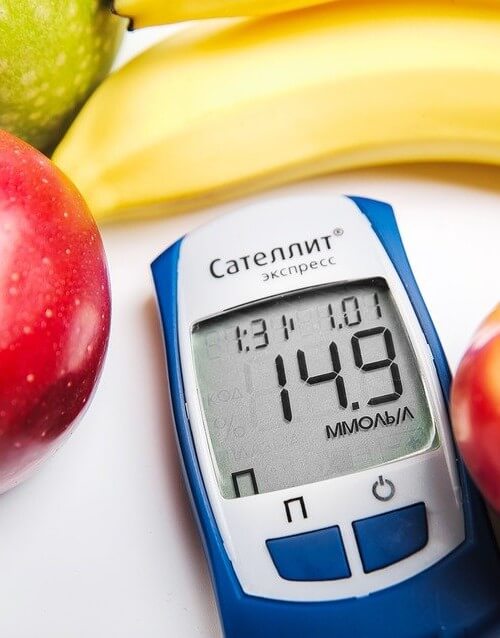
Better Diet for Diabetes
Several dietary factors affect diabetes. So diabetes patients need to be aware of these factors. Then they can discuss food concerns with their doctors. To ensure that their diet supports their diabetes treatment plan.
Diet for Diabetes Purpose
My purpose in writing this article is to review some foods and nutrients that affect diabetes. So this supports my Purpose of Foodary.com. Because it reveals aspects of your diet that you can discuss with your doctor. Then you’ll understand how diet choices can improve your doctor’s diabetes treatment plan.
Diet for Diabetes History
Recently, researchers have explained how iron in the foods we eat can affect diabetes. But before I summarize that report, let me list some other articles I’ve written on diet and diabetes.
- pH Balance and Diabetes
- When alkaline diets are measured correctly (e.g. using the PRAL method) they show the acid load on the kidneys. So this article explains why “dietary acid load is directly associated with an increased risk of type 2 diabetes”[1].
- Does Yogurt Help Diabetes
- This article summarizes a review of dairy consumption and type 2 diabetes[2]. Interestingly, the study did not find a link between total dairy consumption and diabetes. But they did report that “Participants who ate a daily serving of yogurt had 18% less risk of Type II Diabetes”.
- Better Diabetic Neuropathy Diet
- This article summarizes a study of vegan diet and reduced diabetic nerve pain[3].
- Mediterranean Diet Improves Health in Chile
- Though this study looks at Chile, it’s findings are important for diabetes sufferers everywhere[4]. Since Mediterranean style climate areas occur on 5 continents. Also Mediterranean eating styles can adapt to most locations. Note that the health benefits were found to improve several diseases – not just diabetes.
Iron and Diabetes Study
The latest diet for diabetes investigation looks at the effects of dietary iron[5]. Now iron digestion is complicated. Because different types of iron (heme and nonheme) are absorbed differently. Also, some food combinations can affect iron availability. So you need to consult a specialist who understands iron digestion. But if iron consumption concerns you, be aware that this study concludes:
Total iron and nonheme iron intake was associated with diabetes risk […] Sufficient intake of nonheme or total iron might be protective against diabetes, while excessive iron intake might increase the risk of diabetes among men.
Low-Carb Diet, Sleep, Mood, & Diabetes
A study of 265 diabetic women looked at links between carbohydrate foods intake, sleep, and mental status[6]. So researchers analysed these type 2 diabetics for:
- Low Carbohydrate Diet (LCD) Score.
- Depression, Anxiety and Stress Scale.
- Pittsburgh Sleep Quality Index
Then statistical analysis revealed that high LCD scores are linked to better sleep, lower depression, and lower anxiety. Now this is not advocating low carbohydrate diet as a choice for improving diabetes. But if you do have diabetes…
It seems that [diabetes] patients who consumed lower carbohydrate, have better sleep status and less involved with mental disorders.

Your Diet for Diabetes
Please note that this is a small sample of investigations into diets for diabetes. So if you are concerned about any aspects of your diet you must consult a doctor. However, I can help you prepare for your consultation by providing you with relevant facts.
You can share your concerns about how certain foods affect diabetes. So tell me your questions, experiences, or opinions in the Feedback form below. Then I can find relevant facts for you to discuss with your professional health adviser.
Leave Diet for Diabetes to read What Diet for Your Disease?.
Diet for Diabetes Related Topics
Please remember: to find more related pages that are relevant to you, use the search box near the top of every page.
Common Terms: diabetes
Other posts that include these terms:
- Food Symptoms Diary Records
- Better Diabetic Neuropathy Diet
- Can you eat Yogurt with Diabetes?
- pH Balance and Diabetes
Diet for Diabetes References
- Fagherazzi, Guy, Alice Vilier, Fabrice Bonnet, Martin Lajous, Beverley Balkau, Marie-Christine Boutron-Ruault, and Françoise Clavel-Chapelon. “Dietary acid load and risk of type 2 diabetes: the E3N-EPIC cohort study.” Diabetologia 57, no. 2 (2014): 313-320.
- Chen, Mu, Qi Sun, Edward Giovannucci, Dariush Mozaffarian, JoAnn E. Manson, Walter C. Willett, and Frank B. Hu. “Dairy consumption and risk of type 2 diabetes: 3 cohorts of US adults and an updated meta-analysis.” BMC medicine 12, no. 1 (2014): 215.
- Bunner, A. E., C. L. Wells, J. Gonzales, U. Agarwal, Elham Bayat, and Neal D. Barnard. “A dietary intervention for chronic diabetic neuropathy pain: a randomized controlled pilot study.” Nutrition & diabetes 5, no. 5 (2015): e158-e158.
- Echeverría, Guadalupe, Emma E. McGee, Inés Urquiaga, Paulina Jiménez, Sonia D’Acuña, Luis Villarroel, Nicolás Velasco, Federico Leighton, and Attilio Rigotti. “Inverse associations between a locally validated Mediterranean diet index, overweight/obesity, and metabolic syndrome in Chilean adults.” Nutrients 9, no. 8 (2017): 862.
- He, Jingjing, Aiping Fang, Siwang Yu, Xin Shen, and Keji Li. “Dietary Nonheme, Heme, and Total Iron Intake and the Risk of Diabetes in Adults: Results From the China Health and Nutrition Survey.” Diabetes Care (2020).
- Daneshzad, Elnaz, Seyed‐Ali Keshavarz, Mostafa Qorbani, Bagher Larijani, and Leila Azadbakht. “The association between Low Carbohydrate diet, sleep status, depression, anxiety and stress score.” Journal of the Science of Food and Agriculture (2020).
